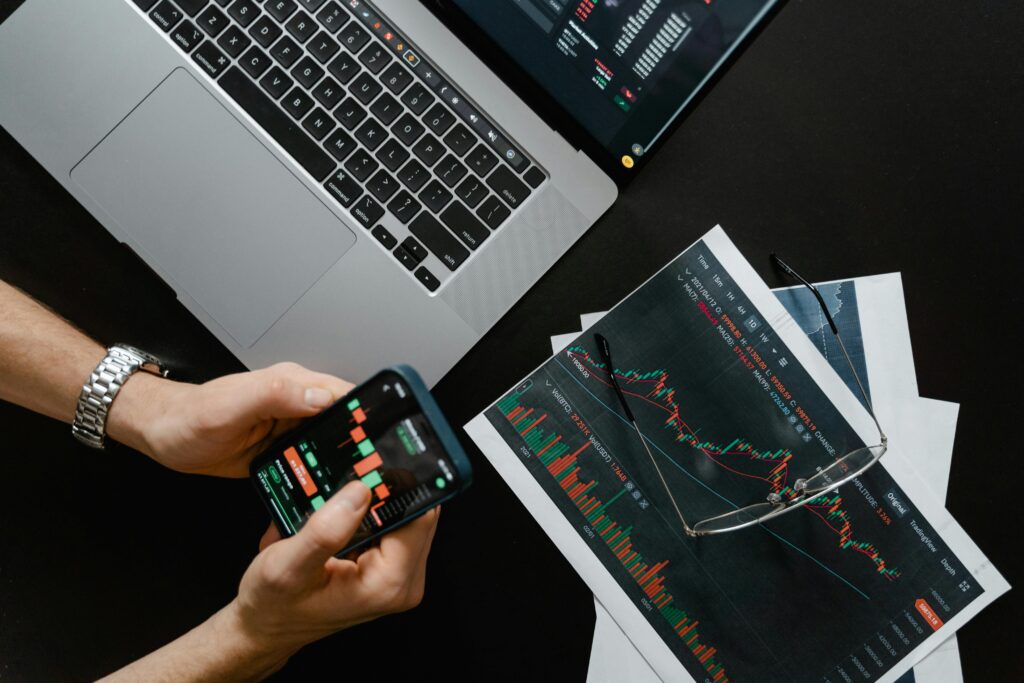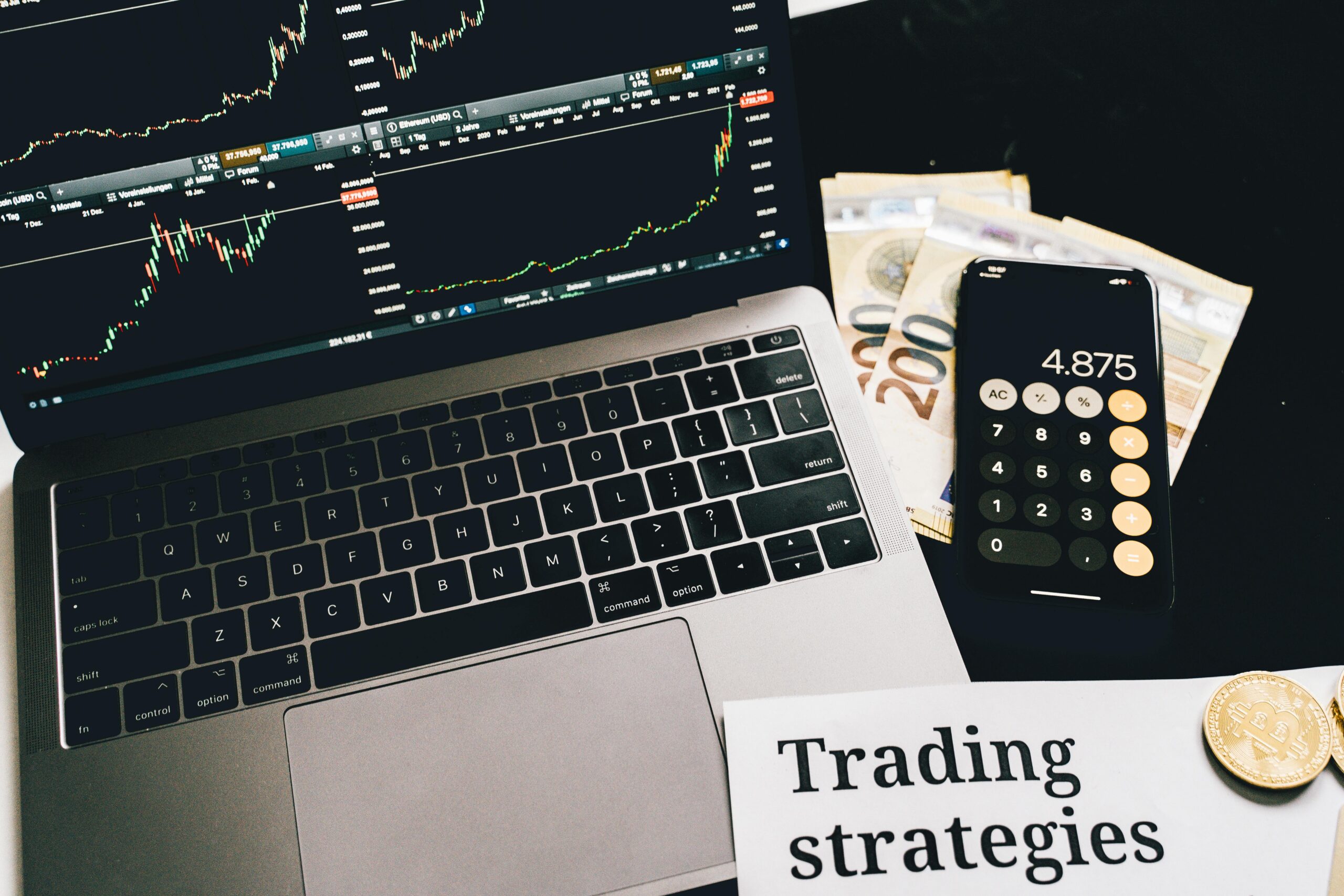Think twice if you have ever considered beginning forex trading but were discouraged by the belief that you would initially require a lot of money. Starting forex trading with minimal capital is quite possible, and in this article, we will guide you through the process. Forex trading may be a fantastic choice, whether your goal is to increase your savings or generate an additional income, even if your budget is limited. The basics of forex trading, how to begin with little money, and suggestions to help you succeed will be covered in this article.

What is Forex Trading?
Forex trading is the worldwide market for buying and selling currencies. It’s a means of speculating on the price swings of currencies such as the US Dollar, the Euro, the British Pound, and many more. You want to make money from variations in the value of one currency relative to another. Among the largest and most liquid markets available worldwide is the currency market. Operating twenty four hours a day, five days a week, with a daily trading volume of more than $6 trillion, it presents a constant possibility to trade.
Anyone who wants to trade can participate in the currency market; starting is not dependent on wealth. Many successful traders began with relatively little money. Forex brokers let you trade with leverage, enabling you to handle a larger position than would typically be possible with your original investment. When you first have little means, this is very helpful.
Why Forex is Attractive for Beginners
Due to its accessibility, forex is particularly appealing to beginners. Starting with a small deposit, you can begin trading; unlike other financial markets, you are not dealing with complex rules. Many forex brokers have minimal deposit requirements, which makes opening a live account simple for beginning traders, starting from a modest investment.
Forex markets also open almost twenty four hours a day, giving you freedom to trade whenever it is most convenient. Participating in forex trading does not mean abandoning your day employment. Another essential reason forex trading is perfect for novices is the freedom to start small and scale up as you learn.
Leverage and Margin Trading
Forex trading depends heavily on leverage. It allows you to hold a more prominent position than your usual deposit would permit. For instance, if a broker provides 100:1 leverage, you might own a $10,000 position with just $100 in your account. Leverage increases your risk, even if it may boost your potential earnings. Therefore, before entering trades, it is essential to understand how leverage works.
Margin trading is the total amount required to open a position. If you have 100:1 leverage, you might only need a little margin to create a sizable trade. Using leverage should be done carefully, particularly in cases with low means. If improperly controlled, high leverage can result in significant losses.
Risk Management
Although you might profit from small forex investments, success in forex depends on risk management. Hoping for substantial gains, many novice traders are eager to start, but they could also incur significant risks. Still, trading high risk usually results in considerable losses. Effective traders understand the importance of controlling emotions, utilizing stop-loss orders to minimize the losses in every trade, and thereby limiting the risk associated with each deal.
When dealing with tiny sums of money, particular attention to risk management is vital. Setting reasonable expectations and avoiding overleveraging is crucial, as you do not want to lose balance on one deal. Over time, you will develop your account by maintaining minimal risk and wise trading practices.
How to Start Forex Trading with Little Money
Starting forex trading with less money is simpler than you would believe. Starting with a demo account, utilizing leverage sensibly, and selecting the correct forex broker will all help. This is a detailed walkthrough of the steps to get started with budget forex trading.
Choose a Forex Broker That Offers Low Minimum Deposits
Choosing a broker that accepts modest initial deposits is the first step in beginning forex trading with minimal funds. While some brokers require $100 or more to open an account, others ask for as little as $10 or $50. Examining the minimum deposit criteria, trading fees, and spreads a broker provides can help you choose one.
Many brokers offer demo accounts, allowing you to hone your skills without risking real money. Before committing any of your money, this is a fantastic approach to testing the market and evaluating your ideas. Seeking brokers with cheap spreads and costs can also enable you to save money on every deal.
Practice with a demo account before trading with actual money
Opening a sample account is brilliant even before you begin trading money. A sample account allows you to practice trading and evaluate various approaches by simulating current market conditions. Without taking on any personal risk, this will help you understand how the market operates.
You have a fixed virtual money trading limit on a demo account. Although it is not the same as trading with actual money, it may provide insight into market analysis and trade execution. You can start trading real money once you have developed your abilities and confidence.
Start Small and Build Your Account Gradually
When you’re ready to start trading real money, start small. Trading with limited means does not imply you have to expose considerable risks. Start with a small amount you are comfortable with, and use leverage carefully. The aim is to learn and gain experience without compromising your income too much.
Starting modestly allows you to progressively increase your account as you develop confidence and hone your trading techniques. Many great traders advise risking 1-2% of your trading money per deal. This approach ensures that your account remains healthy, even after a few unfavorable transactions.
Top Tips for Forex Trading with Little Money
These ideas will help you on the right path to success in FX trading with little money.
Focus on One Currency Pair
Focusing on trading one or two currency pairings instead of trying to trade many at once is prudent for a novice with little money. For beginner traders, the most commonly used pairs, such as EUR/USD or GBP/USD, are ideal as they offer excellent liquidity, guaranteeing a high level of market activity.
Focusing on several pairings lets you discover their price swings and trends without becoming overburdened. As you become more experienced, you can expand your trading approach to include more pairings. But first, simplicity is essential.
Take Advantage of Forex Signals and Tools
Many brokers and websites offer free or paid forex signals, suggestions, or advice on when to enter or exit trades. Although signals cannot guarantee success, they can be valuable tools for novices to make informed decisions.
Furthermore, some free forex trading tools can aid in market analysis and enhance your trading plan. These comprise news updates, financial calendars, and charting instruments. Without having a lot of cash, using these tools can let you make better trading judgments.
Learn Continuously and Stay Disciplined
Forex trading is a lifelong learning process, especially if you start with little money. Invest some time learning the foundations of forex trading, several techniques, and market analysis skills. Free online resources abound, from blogs to YouTube videos to classes to advance your expertise.
Maintaining discipline is also vital. Seeing other traders win money can make one easily emotional or impulsive, but following your strategy is essential. Steer clear of chasing short gains; instead, keep in mind that stability is vital for account growth over time.
Common Mistakes to Avoid When Trading with Little Money
Being a novice makes mistakes easy, mainly when dealing with minimal resources. Awareness of these errors and taking action to prevent them helps one avoid unnecessary losses. Here are some common mistakes rookie traders make and ways to avoid them.
Overtrading
Especially when starting with little money, one of the biggest mistakes traders make is overtrading. Either out of enthusiasm or the need to generate rapid gains, overtrading results from too many deals made in a short period. This behaviour raises your market exposure and might result in unnecessary losses.
Staying patient and adhering to your trading plan can help you avoid overtrading. Emphasize quality exchanges over quantity. Remember, waiting for the right opportunities rather than driving deals out of frustration is preferable. Consistent, careful transactions are more likely to be profitable in the long run.
Ignoring Risk Management
Another typical error is ignoring risk management ideas. The thrill of winning money may enthrall new traders and cause them to overlook the importance of establishing stop-loss orders or determining the appropriate position size. Especially when working with minimal funds, trading without proper risk control can rapidly result in significant losses.
Use stop-loss orders consistently to protect your account from losses. Establish reasonable risk ratios and avoid making more than 1-2% of your trading capital risk on one deal. Your account will have sufficient funds even if you experience several losses to keep trading.
Chasing Losses
A deal gone bad is natural for one to feel irritated or angry. One of the worst things you can do is pursue losses by trying to recover lost money by running additional risks. This behaviour usually results in even more losses and can quickly wipe out your trading account.
Staying focused and following your trading plan can help you avoid chasing losses. If you are bereaved, avoid rushing. Break off, consider your deal, and examine what went wrong. Learning from your errors is the secret to long term forex success, rushing to compensate for them does not help.
Conclusion
Starting forex trading with minimal capital is feasible, and if approached with the correct attitude and techniques, it can be a profitable experience. With a small initial deposit, you can start trading with the right broker, use leverage sensibly, practice on a demo account, and follow sound risk management practices.
